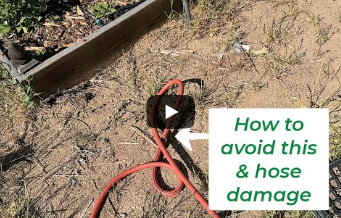Homemade Weed Killer: Your Eco-Friendly Solution for a Weed-Free Garden
Recipes & Natural Weed Killers as Alternatives to Chemicals
Welcome to the world of gardening, where a lush, vibrant garden is the pride of every gardener. However, weeds can be a persistent nuisance, and suck up time in the garden from what you really enjoy. Thankfully, with a homemade weed killer, you can tackle these unwelcome visitors effectively and safely. Let’s dive into how you can create an effective, environmentally friendly homemade weed killer, with an added insight into the chemistry behind these solutions.
Understanding the Benefits of Homemade Weed Killer
Opting for a homemade weed killer isn’t just about getting rid of weeds; it’s about doing so responsibly and sustainably.
- Eco-Friendly– By using natural ingredients, homemade weed killers reduce chemical runoff and soil contamination.
- Safety– These weed killers are safer around children, pets, and wildlife compared to chemical herbicides.
- Cost-Effective– Utilize common household items, saving money.
- Targeted Application– They offer a way to kill weeds without damaging your plants if used carefully.
Master Gardener Tip: note that no matter what weed management techniques you use, there is no silver bullet. Weeds have evolved to grow and find a way to survive and go to seed, and any weed management program, no matter the size, will be most successful if you combine several techniques outlined in our reading methodologies post here: Weed Management.
The Science Behind Homemade Weed Killers
The Power of Acetic Acid in Vinegar
- Vinegar-Based Weed Killer– Common vinegar contains acetic acid, which is a desiccant. It removes moisture from weed leaves, causing them to dry out and die. The concentration of acetic acid in household vinegar is generally around 5%, making it effective primarily against young, tender weeds.
The Thermal Shock of Boiling Water
- Boiling Water– A simple, yet effective method, boiling water causes a thermal shock to weeds, denaturing their proteins and effectively ‘cooking’ them. This method is immediate and effective, especially in areas like driveways or garden paths.
The Growth Inhibition of Cornmeal
- Cornmeal as a Pre-emergent– Cornmeal contains substances that act as a pre-emergent herbicide. It inhibits seed germination but won’t kill established weeds. It’s more of a preventive measure in your weed management strategy.
Salt – The Natural Desiccant
- Salt-Based Solutions– Salt is hygroscopic, meaning it attracts and holds water molecules from its environment. When applied to weeds, it dehydrates the plant. However, use it sparingly as it can lead to soil salinity issues.
The Synergistic Effect of a Combined Approach
- Soap, Salt, and Vinegar Mix– This combination unites the desiccating effects of salt and vinegar with the sticking power of soap. The soap reduces the surface tension of the mixture, helping it to stick to the leaves and enhancing the overall effectiveness.
DIY Recipes for Homemade Weed Killers
here is a quick list of some natural weed management recipes using a variety of household items, including vinegar, salt and water.
1. Vinegar Solution
Mix 1 gallon of white vinegar with 1 cup of salt and 1 tablespoon of liquid dish soap. Apply on a sunny day for maximum effectiveness.
2. Boiling Water
Pour directly on the weeds, ideal for hard surfaces.
3. Cornmeal
Sprinkle over garden beds to prevent weed seed germination.
4. Salt Solution
Combine 1 part salt with 2 parts boiling water and apply carefully to the weeds.
5. Soap, Salt, and Vinegar Mix
A gallon of white vinegar, a cup of salt, and a tablespoon of liquid dish soap mixed together for a potent weed killer.
Using Homemade Weed Killers Effectively
- Spot Treatment– Ideal for treating individual weeds.
- Repeated Application– Some tough weeds may require more than one treatment.
- Protect Desirable Plants– Be careful not to harm your desired plants.
- Application Timing– Choose a sunny, calm day for application.
Are these considered organic?
Homemade weed killers, as described in the previous section, can generally be considered “organic” in the broad sense that they are made from natural, non-synthetic ingredients. However, the term “organic” in gardening and agriculture often carries a specific certification or standard, particularly when it comes to products used in organic farming.
- Vinegar– Common household vinegar is natural and could be considered organic, especially if it is derived from organic produce. However, not all types of vinegar may qualify for organic certification due to the processes involved in their production.
- Boiling Water– This is certainly organic as it is just water, with no added chemicals or synthetic substances.
- Cornmeal– If the cornmeal is sourced from organically grown corn, it would be considered organic. However, if it comes from conventionally grown corn, it would not meet organic standards due to potential pesticide and fertilizer use in the growing process.
- Salt– While salt is a natural mineral, its organic status can be ambiguous. In some organic farming standards, excessive use of salt is discouraged due to its impact on soil health and the broader environment.
- Soap– The organic status of soap depends on its ingredients. Some soaps contain synthetic chemicals and would not be considered organic. On the other hand, soaps made with organic, natural ingredients could be considered organic.
In summary, while homemade weed killers are made from natural ingredients and are a more environmentally friendly choice, whether they are “organic” in the strictest sense depends on the source and production method of their individual components. If you are aiming for a garden that adheres to organic standards, it’s important to source ingredients that are certified organic.
Conclusion
Homemade weed killers offer an effective, environmentally friendly, and safe way to manage weeds in your garden. Understanding the chemistry behind these solutions helps you use them more effectively. By using homemade weed killers, you contribute to a healthier garden and a cleaner environment.
Remember, a well-maintained garden is naturally more resistant to weeds. So, keep nurturing your garden, and enjoy the satisfaction of a beautiful, weed-free space with the help of your homemade weed killer.
FAQ: Homemade Weed Killers
1. Are homemade weed killers considered organic?
Yes, most homemade weed killers can be considered organic as they are made from natural ingredients like vinegar, salt, and soap. However, the term “organic” can vary in definition, so it’s best to check if each component meets the specific organic standards you’re following.
2. Can homemade weed killers harm my other plants?
Yes, if applied directly. These solutions are non-selective, meaning they can harm any plant they come into contact with. Use them carefully around desirable plants.
3. How long does it take for a homemade weed killer to work?
This can vary. Boiling water works almost immediately, while vinegar-based solutions might take a few hours to a few days to show results.
4. Will these weed killers prevent weeds from coming back?
While they are effective at killing existing weeds, most homemade solutions don’t prevent new weeds from sprouting. Cornmeal can act as a pre-emergent to some extent, but it won’t stop all new weed growth.
5. Are homemade weed killers safe for pets and children?
Generally, they are safer than commercial chemical herbicides. However, ingredients like salt and vinegar in high concentrations can still be harmful if ingested or come in contact with skin. Always use caution and supervise pets and children in treated areas.
6. Can I use any type of vinegar for a vinegar-based weed killer?
Household white vinegar, which typically has a 5% acetic acid concentration, is commonly used. Stronger vinegar (like horticultural vinegar with 20% acetic acid) is more effective but must be handled with greater care due to its corrosiveness.
7. How should I apply these homemade weed killers?
For liquid solutions, using a spray bottle is most effective. This allows for targeted application, reducing the risk of harming other plants.
8. How often should I reapply homemade weed killer?
It depends on the solution’s effectiveness and the resilience of the weeds. Some might require a second application after a few weeks, especially in the case of tougher weeds.
9. Can homemade weed killers affect soil health?
Salt-based weed killers can lead to increased soil salinity which may harm future plant growth. Use such solutions sparingly and in areas where you don’t plan on growing plants.
10. Are there any weather conditions that affect the effectiveness of homemade weed killers?
Yes, applying them on a sunny day helps, as heat accelerates the action of vinegar and salt-based solutions. Rain soon after application can wash away the solution, reducing its effectiveness.
More From Our Master Gardener
Recent Posts

Gardening Tools for Raised Beds & Small Spaces: Tips and Recommendations for Compact and Efficient Tools

Perennials that Live Forever: The Longest-Lived Plants for Your Garden

What to Plant in October for a Beautiful Garden Next Year

The Secret to Growing Healthy Indoor Plants in Low-Light Conditions

October Garden Checklist – Essential Tasks to Keep Your Garden Thriving














